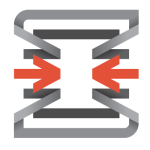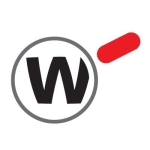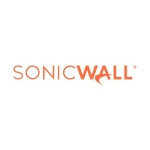What is our primary use case?
We primarily use it for internet security. We use it for firewalling, ePass, and threat detection including anti-malware protection, bug protection, and social inspection. We can also use it for DLP.
What is most valuable?
The solution helps out in our security goals. It acts as a primary source of protection for threats from the internet and is great for data leakage protection.
Most of the time, it's pretty stable.
We have all the features we want or need in this appliance. It's been good so far.
What needs improvement?
Sometimes there are security bugs, which is frustrating.
Right now, we have a problem with DLP and this problem has become very big. Check Point, our firewall, is not handling data properly. There seems to be some sort of security bug.
For how long have I used the solution?
I've used the solution for ten years or so. It's been a decade at least.
What do I think about the stability of the solution?
The solution, for the most part, is very stable. We find it to be quite reliable. There are bugs, however, which have caused some issues.
What do I think about the scalability of the solution?
The solution is not scalable per se. There is only one way to upgrade and that is to buy new appliances.
Currently, we have around 7,000 people using this solution.
Likely, we won't be increasing usage. We are building new releases and we are considering changing this solution to another vendor. We might switch from Check Point to maybe Palo Alto or Cisco. We don't know which yet.
How are customer service and support?
We haven't really dealt with technical support. We typically go through our partners.
Which solution did I use previously and why did I switch?
We also use Cisco as well. We use Cisco ASA. Check Point, right now, is our primary firewall.
Check Point offers very good management. For an administrator, it's easy to manage this appliance, this firewall. Cisco, historically, has a big problem with this, specifically with FTD firewalls. There also tend to be some bugs you have to contend with.
How was the initial setup?
I can't speak to the initial setup process. Our partner handled it and therefore I wasn't really part of the process. That said, for me. the process is pretty simple.
My understanding is that the deployment took a few days.
I'd rate the experience of the initial setup at a four out of five.
About two people were able to handle the implementation process. Typically, they are architects and engineers.
What about the implementation team?
We had a partner set up the solution for us.
What was our ROI?
We have seen a decent ROI. I'd rate it at a four out of five.
What's my experience with pricing, setup cost, and licensing?
I can't speak to the cost of the solution. We deal with it through a partner, and I'm not involved in any of the pricing aspects.
Which other solutions did I evaluate?
We are considering switching to Palo Alto or maybe Cisco in the near future.
What other advice do I have?
We are a customer and an end-user.
Some blades, some function blades on Check Point, are very good, however, it's not all of them. Right now, I know DLP and social inspection are a problem. New users should be aware of this.
Overall, I would rate the solution at a seven out of ten.
Which deployment model are you using for this solution?
On-premises
Disclosure: My company does not have a business relationship with this vendor other than being a customer.













